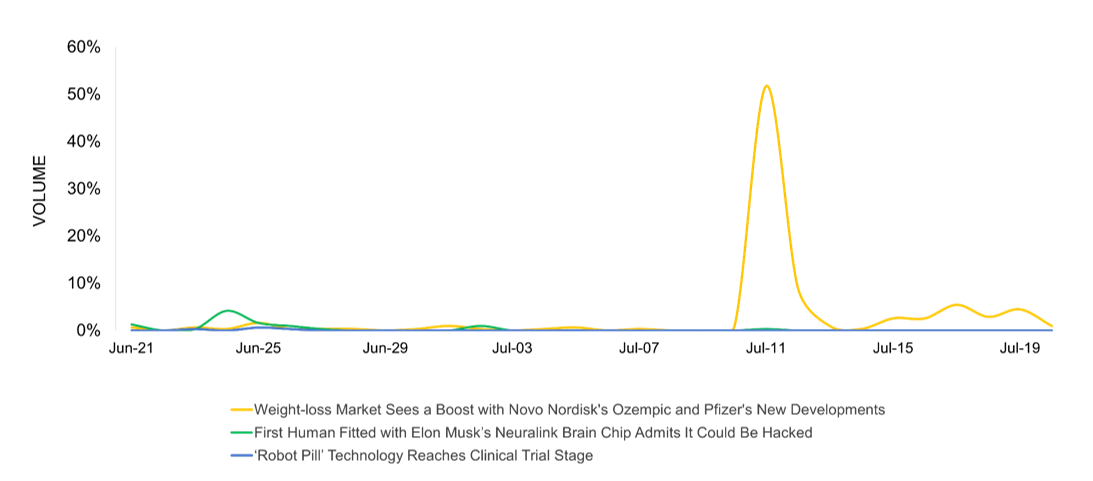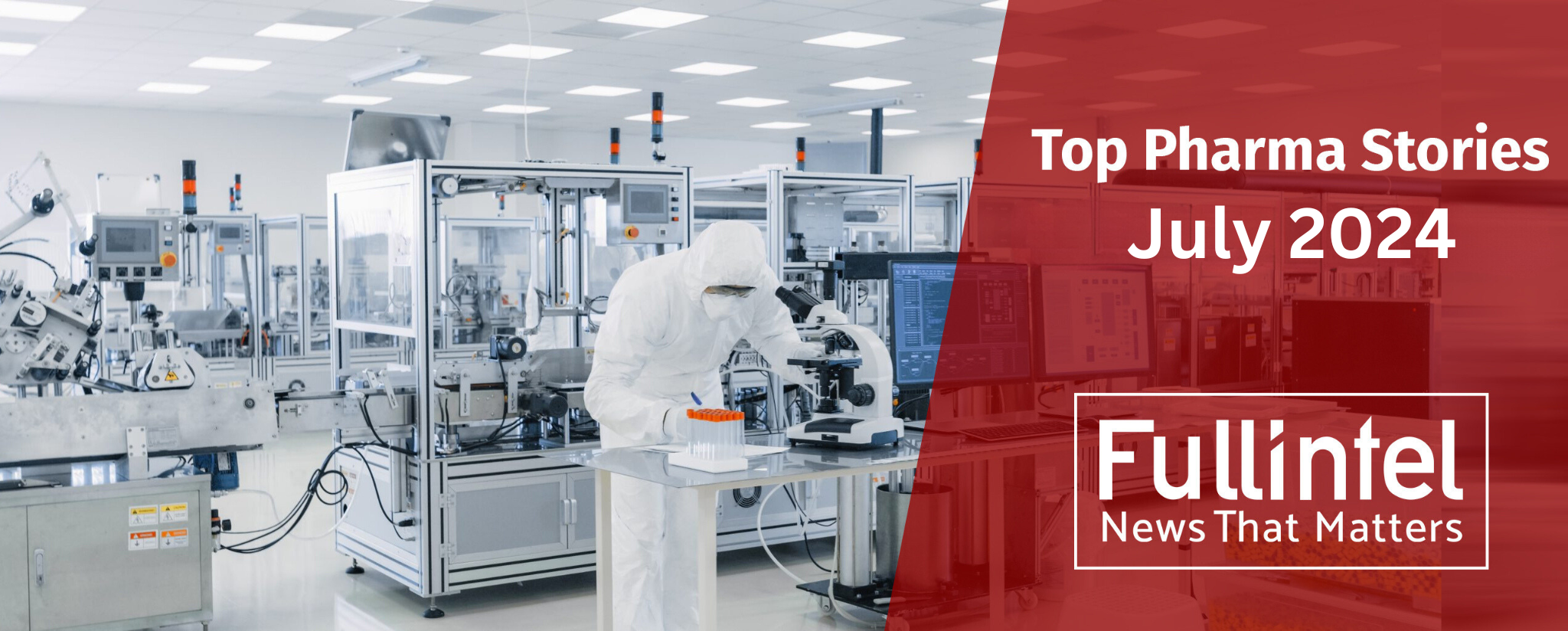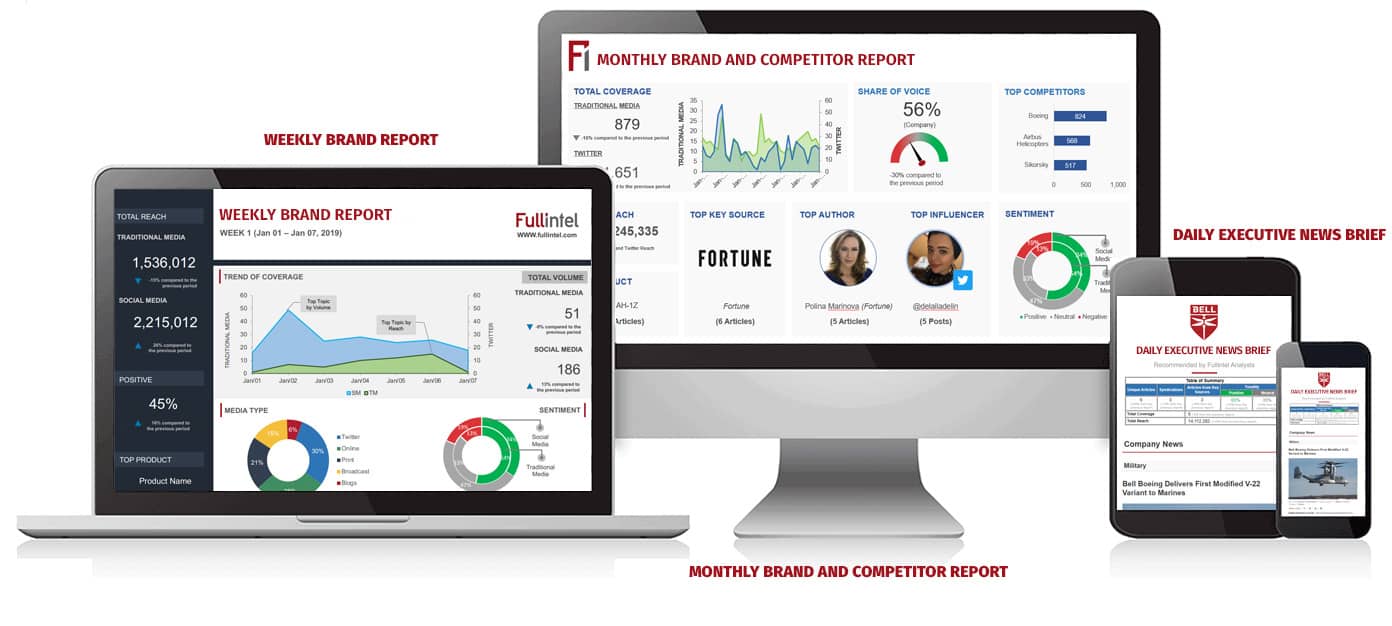This month, news in the pharmaceutical industry focuses on the connection between patient experience and technology. AI technologies play a pivotal role in drug discovery and clinical trials, using neural networks and predictive analytics to accelerate processes and improve patient outcomes. Despite this progress, the industry faces economic challenges such as rising operational costs due to inflation and new regulatory pressures, necessitating a balance between innovation and cost efficiency. There is a notable increase in mergers and acquisitions as companies aim to expand their capabilities and market reach through strategic collaborations, while the focus on resilience and sustainability continues to grow, with companies strengthening supply chains and adopting sustainable practices to meet ESG expectations.
Overall, technological advancements drive innovation as the industry navigates complex economic and regulatory landscapes, adopting adaptive strategies to enhance patient care and operational efficiency. In these quick-changing times, Fullintel Hub remains a key resource, providing the latest trends in the pharmaceutical sector with concise insights and accessible data to support informed decision-making.
July’s Top Pharma Advancements Highlight Ozempic’s New Benefits, Neuralink’s Security Concerns, and PillBot’s Clinical Trials

In this month’s newsletter, we highlight the top three significant advancements gaining media attention in the pharma landscape – the expansion of the weight-loss market with Ozempic’s new and improved benefits and Pfizer’s new pill development, Neuralink’s first human recipient discussing potential security concerns, and Endiatx’s ‘robot pill’ entering clinical trials with promising gastrointestinal breakthroughs.
Recent studies reveal that Novo Nordisk’s Ozempic (semaglutide) may offer health benefits beyond weight loss and blood sugar control, including lower risks of dementia and nicotine misuse. Tapping into recent weight-loss products’ success, Pfizer is advancing a reworked, once-daily version of its weight-loss pill danuglipron into clinical trials after discontinuing its twice-daily version due to side effects. These developments drive impressive media volume this month. Noland Arbaugh, the first recipient of Elon Musk’s Neuralink brain-computer interface, downplays hacking risks, noting it would only affect minor functions like cursor control. The trial, a significant step in developing advanced neurotechnology, garners the highest social engagement in the last week of June. Endiatx’s PillBot, a revolutionary robotic capsule for gastrointestinal diagnostics, gains entirely positive media coverage and enthusiastic social reactions from audiences. The company’s CEO Torrey Smith announces $7M in raised funds, ongoing clinical trials, and plans for FDA approval of the technology by early 2026.

A Break-Down of Recent Trending Stories:
Ozempic’s Additional Health Benefits and Pfizer’s Weight-Loss Pill Challenges Drive High Media Coverage
Recent studies and developments in the pharmaceutical industry highlight significant advancements and challenges in weight-loss and diabetes treatments. Novo Nordisk’s Ozempic has shown potential health benefits beyond weight loss and blood sugar control. A recent study found a correlation between Ozempic use and lower risks of dementia, cognitive deficits, and nicotine misuse, despite initial concerns about neuropsychiatric issues. The study, however, is observational and not conclusive, prompting further research. Meanwhile, Pfizer plans to move a reworked, once-daily version of its weight-loss pill danuglipron into clinical trials after discontinuing its twice-daily version due to high side effects. This new drug is part of the second generation of weight-loss pills that offer a more convenient alternative to injections, competing with Novo Nordisk’s Wegovy and Eli Lilly’s Zepbound. Analysts project the weight-loss drug market to reach $150B in annual sales by early 2030s. Despite setbacks, including the discontinuation of another weight-loss drug, lotiglipron, Pfizer’s shares rose by 2.8% following the announcement of promising early study results for danuglipron. Although predominantly covered in a neutral tone by media outlets, these developments drive high volume this month, trending the highest on July 12. The stories elicit a dominant “laugh” reaction among the audience due to the unexpected benefits of Ozempic despite prior concerns and Pfizer’s history of discontinuing weight-loss drugs due to side effects like high dropout rates and safety concerns contrasting sharply with their optimistic announcements.

Noland Arbaugh, the first person to receive Elon Musk’s Neuralink brain-computer interface, acknowledges the risk of hacking but remains unconcerned about its impact. Paralyzed from the neck down after a 2016 diving accident, Arbaugh volunteered for the experimental procedure where a computer-controlled “sewing machine” stitched electrodes into his brain tissue under local anesthesia, without requiring an overnight hospital stay. The trial, part of Neuralink’s ambitious project, seeks to test the safety and efficacy of the brain-computer interface in human subjects. Arbaugh mentioned that potential hacking might only affect minor functions like cursor control and viewing data, downplaying its overall impact. This trial represents a significant step in Neuralink’s mission to develop advanced neurotechnology for medical and therapeutic applications. The news around this “potential hack” of a futuristic medical technology receives notable negative mentions. The sentiment is echoed in public social reactions as well with a significantly high proportion of “Laugh” and “Angry” reactions. The admission that the device could be hacked, even if the immediate consequences are minor, provokes anger over privacy and security concerns, as Elon Musk’s often grandiose statements about technology and future innovations are met with skepticism and humor, especially when risks are involved. The coverage drives the highest social engagement of the month, trending through the last week of June.

Endiatx, a pioneering medical technology company founded in 2019, aims to revolutionize gastroenterology with its PillBot, a robotic capsule designed for diagnostic and therapeutic purposes inside the human body. Equipped with cameras, sensors, and wireless communication, the PillBot allows detailed examination of the gastrointestinal tract. CEO Torrey Smith announced that the company has raised $7M, with clinical trials underway and pivotal trials starting at a leading U.S. medical institution in late 2023. The PillBot, now in its 20th generation, measures 13mm by 30mm and transmits high-resolution video, with plans to enhance video quality further. Smith, who has personally tested the PillBot, aims for the FDA’s approval by early 2026 and envisions the product to be available for around $50, potentially as an over-the-counter option. The company believes that the PillBot will transform gastroenterology and healthcare, providing vast amounts of valuable data for AI models. This advancement drives entirely positive media coverage and garners appreciative “Wow” and “Love” social reactions from the audience. The CEO’s personal involvement in the testing process, including swallowing 43 PillBots, adds a human element to the story, that demonstrates dedication and confidence in the product and generates favorable social interactions.



